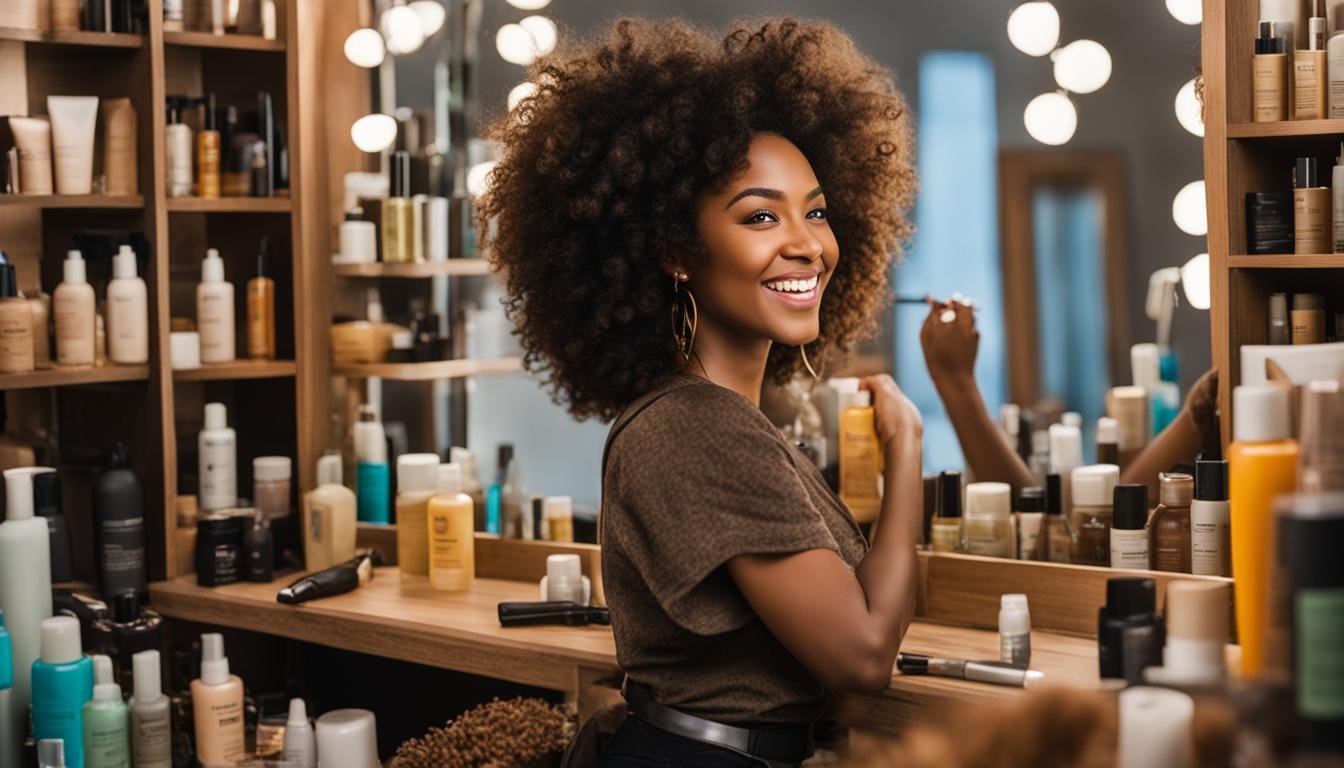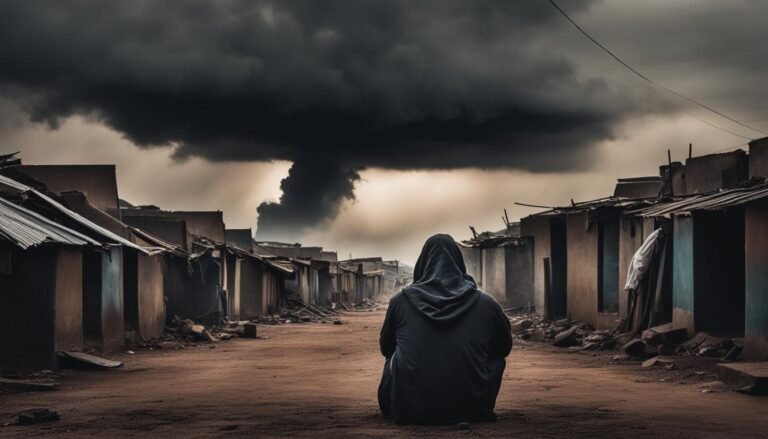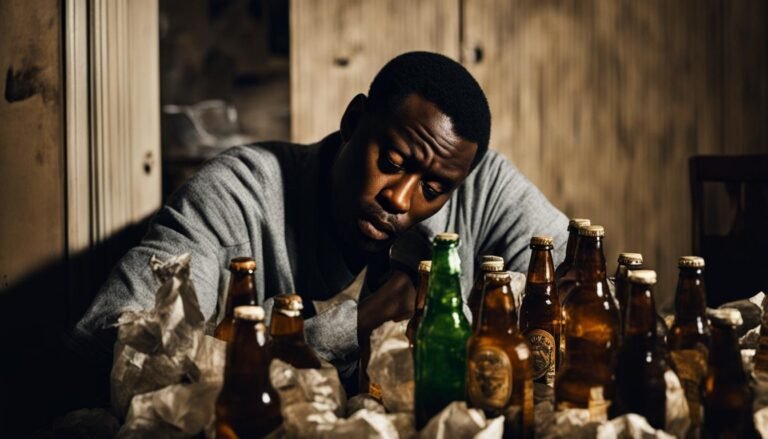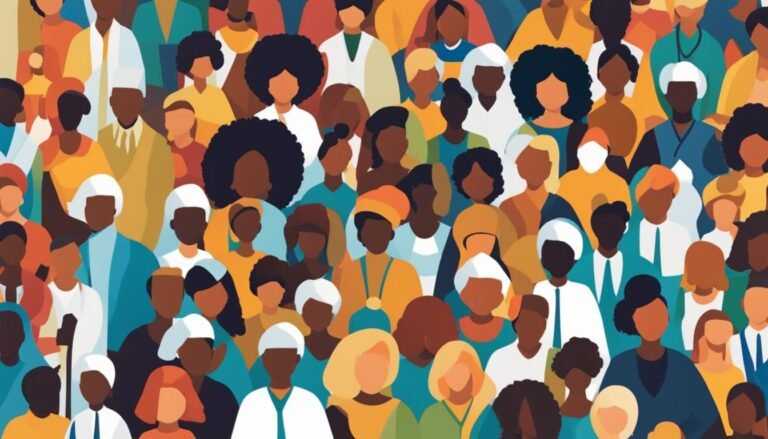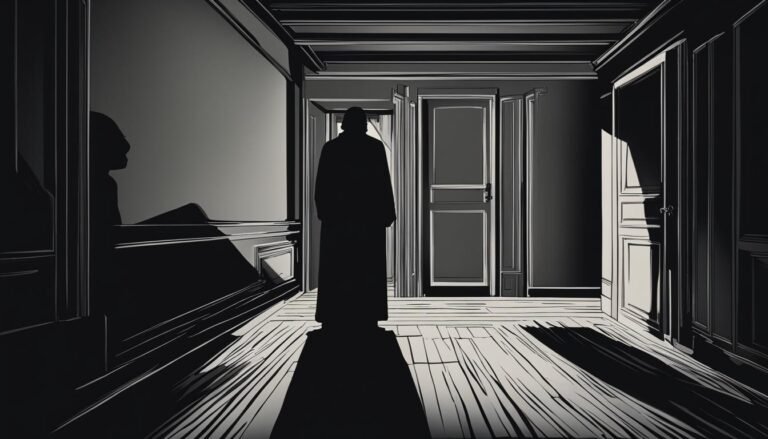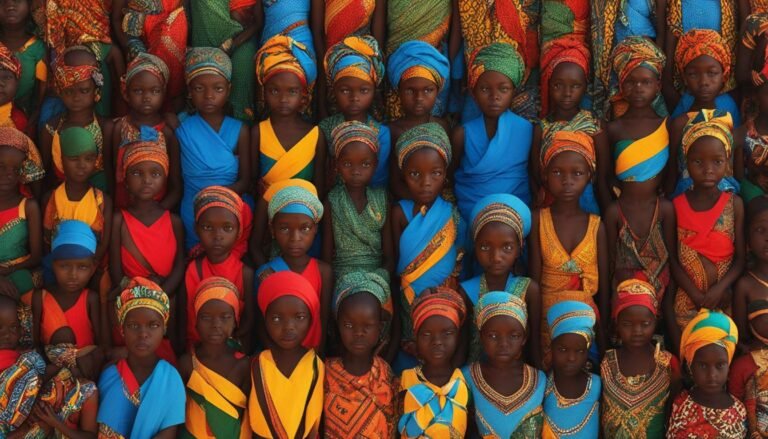Why is Hair Important in Black Culture?
Hair holds immense importance in Black culture as it serves as a symbol of identity, resistance, creative expression, and freedom. Throughout history, Black hair has been intertwined with the history of America and the struggle for racial equality. The evolution of Black hairstyles reflects the progress of the Black community and their journey towards embracing their natural beauty. However, hair discrimination and Eurocentric beauty standards still persist, highlighting the ongoing fight for acceptance and equality in society. The Black hair industry is a multi-billion dollar business and Black-owned beauty brands continue to emerge, showcasing the economic and cultural significance of Black hair.
Key Takeaways:
- Black hair holds immense cultural and symbolic significance within Black culture.
- Black hairstyles reflect the progress of the Black community in embracing their natural beauty.
- Hair discrimination and Eurocentric beauty standards persist, creating a need for greater acceptance and equality.
- The Black hair industry is a thriving and influential sector within the beauty industry.
- Black-owned beauty brands represent the economic and cultural significance of Black hair.
The Evolution of Black Hair in America
In the early days of America, Black individuals were forced to conform to Eurocentric beauty standards that emphasized hairstyles flattening and straightening their natural hair. This pressure to conform often resulted in the suppression of Black cultural heritage and self-expression.
However, as Black culture began to challenge and reject these Eurocentric norms, a revolution in Black hairstyles emerged. Natural Black hairstyles, such as the iconic afro, gained popularity as a symbol of unapologetic Black resistance during the Civil Rights Movement.
The afro became a powerful statement of African pride, reclaiming cultural roots, and demanding equality. Influential activists like Angela Davis embraced the afro, using their platform to challenge mainstream perceptions of beauty and advocate for societal change.
As the decades passed, Black hair continued to evolve alongside cultural movements. In the 90s, with the rise of hip hop, new hair trends emerged, pushing the boundaries of what hair could be. Black celebrities like Janet Jackson, Lauryn Hill, and Lil Kim became trendsetters, showcasing the versatility and creativity of Black hairstyles.
Since then, natural, artificial, and pressed hair styles have continued to thrive, providing Black individuals with endless options to express their unique style and personality. Today, Black hairstyles encompass a wide range of choices, from intricate braids and locs to vibrant weaves and wigs.
Hair as a Political Statement
Unfortunately, society has subjected Black hair to stereotypes and discrimination, leading to race-based hair discrimination in schools and workplaces. Discriminatory hair policies have systematically disadvantaged Black individuals, perpetuating racial inequalities and preserving white-dominated spaces. To combat this, the CROWN Act was introduced, a significant legislative step in prohibiting race-based hair policies.
The CROWN Act, which stands for “Creating a Respectful and Open World for Natural Hair,” recognizes and addresses the discrimination faced by individuals with natural hairstyles such as afros, braids, twists, and locs. This groundbreaking legislation aims to protect Black individuals from hair-based discrimination and promote inclusivity and equality in all aspects of society.
Black hair holds immense cultural significance, representing more than just a style or fashion choice. It is a symbol of resilience, pride, and cultural heritage. Black hair has long been used as a means of self-identification and self-expression, allowing Black individuals to celebrate their unique beauty and embrace their identity.
“Our hair is a texture that is an exalted expression of who we are, we do not go to work, to school…to be political, it just is. We do this just to be.” – Ava DuVernay
Black hair continues to serve as a means for Black communities to connect, socialize, and express their rich cultural heritage. It is a powerful tool for liberation, breaking free from Eurocentric beauty standards and reclaiming pride in one’s natural appearance.
The preservation and celebration of Black hair is essential in the fight for Black liberation. By enforcing the CROWN Act and challenging discriminatory hair policies, society takes a step towards dismantling systemic racism and ensuring equal opportunities for all individuals, regardless of their hair texture or style.
The Fight for Hair Identity
Discrimination based on hair extends beyond personal experiences; it encompasses the erasure of Black hair identity and heritage preservation. Society has long perpetuated damaging stereotypes and ideals that dictate what is considered “professional” or “acceptable” in terms of hair for Black individuals.
This bias towards Eurocentric beauty standards not only limits opportunities for Black individuals in education and employment but also erases the cultural significance and diversity of Black hair. It reinforces the idea that Black hair is “other” or “unprofessional,” perpetuating a harmful cycle of discrimination and marginalization.
The fight for acceptance and recognition of Black hair identity is not just about personal expression; it is about preserving the heritage and history of Black communities. Black hair tells a story of resilience, creativity, and cultural pride that should be celebrated and respected.
As society continues to strive for equality and inclusivity, it is crucial to challenge and dismantle discriminatory hair policies, promote education and awareness around the significance of Black hair, and create spaces where individuals of all backgrounds can embrace and appreciate the beauty of diversity.
Hair as a Cultural and Spiritual Symbol
In ancient African societies, hair held deep cultural and spiritual significance. Hairstyles conveyed messages about a person’s marital status, age, wealth, religion, and social class. Hair styling was not only a means of self-expression but also a social ritual, providing an opportunity for bonding within families and communities. It was believed that hair connected individuals with the divine, and certain hairstyles were used to send messages to the gods. Hair was seen as a symbol of personal and spiritual power, reflecting the individual’s connection to their roots.
Throughout history, African hair traditions have served as a powerful form of cultural symbolism and spiritual expression. From intricate braiding patterns to elaborate hair ornaments, African hairstyles were meticulously crafted to reflect the values, beliefs, and traditions of the community. These hairstyles were not simply fashion statements; they represented a profound connection to one’s heritage and the spiritual world.
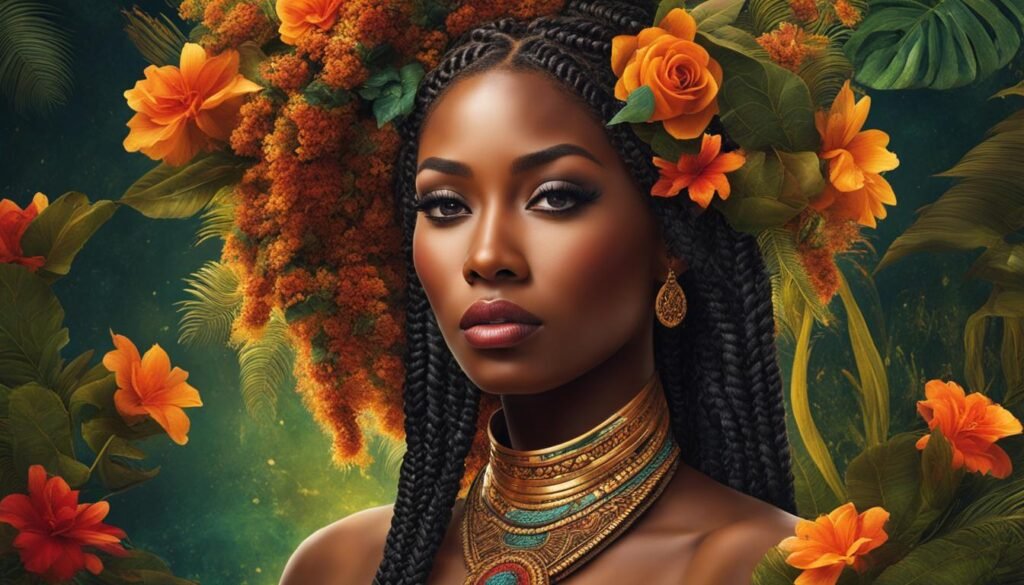
Hair as an Art Form
For centuries, African hair has been celebrated and revered as an art form. The elaborate and creative styles showcased the immense skill and talent of African hairstylists. Techniques such as braiding, twisting, and weaving were passed down through generations, resulting in intricate and awe-inspiring hairstyles. These hairstyles were not only visually stunning but also served as a means of self-expression and cultural identity.
The artistry of African hair extends beyond the physical form. It is a representation of the rich history, traditions, and values of African culture. Each hairstyle tells a story, carrying with it the collective memory and experiences of generations past. From the majestic headdresses of ancient Egypt to the intricate cornrows of the African diaspora, African hair artistry continues to captivate and inspire.
| Symbolic Meaning | Hairstyle |
|---|---|
| Marital Status | Bridal Crown |
| Rite of Passage | Cornrows with Beads |
| Spiritual Connection | Orisha Bantu Knots |
| Protection | Fulani Braids |
The table above showcases just a few examples of how African hairstyles hold significant cultural and symbolic meaning. Each hairstyle serves a specific purpose and signifies an aspect of African identity and spirituality.
“African traditional hairstyles are more than just a fashion statement; they are an expression of our cultural heritage and a connection to the spiritual realm.” – Ngugi Wa Thiong’o
Today, the cultural and spiritual significance of African hair traditions continues to be celebrated and embraced. African individuals around the world proudly wear their hair as a testament to their heritage and as a powerful symbol of self-identity. It is a reminder of the resilience and strength of African people and their ongoing quest for cultural preservation and self-expression.
From Oppression to Empowerment: The Journey of Black Hair in Slavery
During the transatlantic slave trade, the harrowing experience of enslaved Black individuals extended to the erasure of their cultural identity, with the removal of their hair being one of the first acts of oppression. Stripped of their natural hair, they were forcibly disconnected from their heritage, further aiming to suppress their spirits. However, amidst such adversity, Black individuals found resilience and ingenuity in preserving their hair and cultural practices.
In the confines of slavery, hair grooming became a means of survival and resistance, allowing enslaved individuals to assert their humanity. Despite limited resources, they creatively cared for and styled their hair, holding onto fragments of their cultural traditions. Braiding, in particular, emerged as a powerful tool for both preserving their heritage and navigating their paths to freedom.
“In braiding my hair, I found not only a sense of pride, but a tangible map to my liberation.” – Harriet Jacobs
Braids became more than just intricate hairstyles; they served as a method of communication, encoding messages and escape routes within their intricate patterns. Using their hair as a repository of hope, they hid seeds, herbs, and even small pieces of gold, utilizing their grooming practices as a means of survival.
Amidst the dehumanization of slavery, the preservation of hair and cultural practices stood as acts of resistance. The care and maintenance of hair represented a defiance against the erasure of their identities, a way to retain a sense of self in a world that sought to strip them of their humanity.
Notable Figures:
In the face of such adversity, several notable figures emerged, using their hair as a form of resistance and empowerment:
- Harriet Jacobs: An escaped slave and writer, Harriet Jacobs braided her hair as a symbol of her strength and defiance against the oppressive system.
- Mary Edmonson: One of the first enslaved individuals to benefit from a New York law that emancipated slaves, Mary Edmonson cherished her braids as a representation of her culture and resilience.
- Solomon Northup: A free Black man who was kidnapped and enslaved for 12 years, Solomon Northup’s well-groomed hair symbolized his determination to maintain his identity in the face of enslavement.
These individuals, among many others, demonstrated the power and resilience of Black hair in the darkest of times, reminding us of the enduring strength and resistance within Black culture.
| Grooming Practices in Slavery | Symbolism |
|---|---|
| Braiding | Preservation of cultural heritage Mapping escape routes Concealing survival resources |
| Oil application | Protection from harsh conditions Nurturing hair health amidst adversity |
| Headscarves | Expression of identity Preservation of modesty and dignity |
| Covering shaved heads | Resistance against dehumanization Retaining individuality |
The Power of Black Hair in Resistance Movements
The Black Power Movement of the 1960s and 1970s marked a significant shift in the perception and celebration of Black hair. Embracing natural hairstyles, specifically the afro, became a powerful act of self-empowerment and resistance against Eurocentric beauty standards. In this era, Black activists, scholars, and artists, including Angela Davis, Toni Morrison, and Nina Simone, emerged as influential figures who popularized the afro as a symbol of Black pride and the ongoing fight against racism.
During this time, natural hairstyles were seen as more than just a fashion statement; they were a means of reclaiming cultural roots and rejecting the forced assimilation that Black individuals had long endured. The afro became a timeless and enduring symbol of Black resistance and cultural identity, empowering individuals to embrace their natural hair and celebrate their heritage.
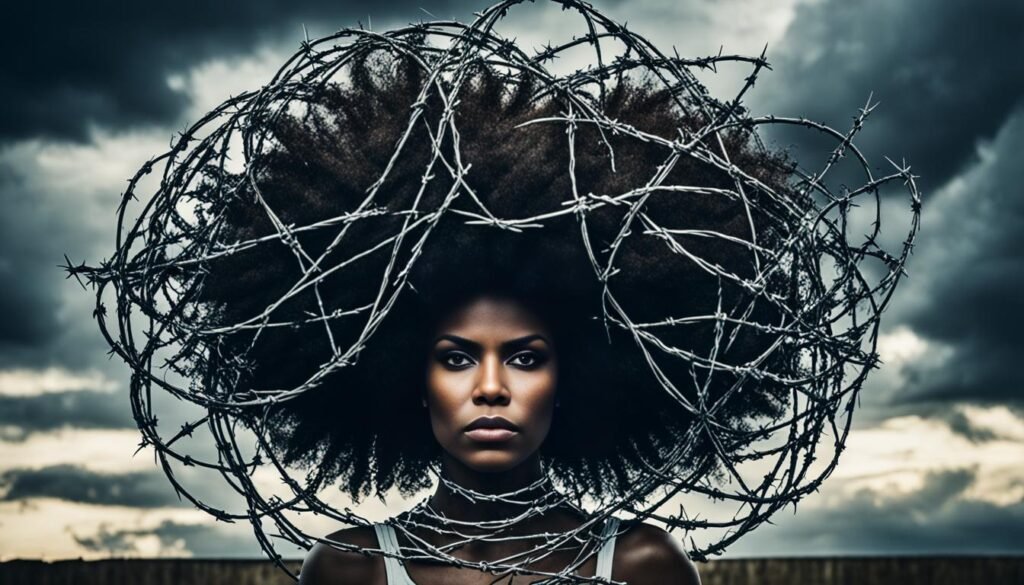
One cannot overstate the impact of the Black Power Movement in reshaping societal perceptions of Black hair. It served as a catalyst for promoting natural hair pride and challenging the dominant beauty norms imposed on Black communities. Through their bold hairstyles and unapologetic embrace of natural textures, individuals proudly reclaimed their identity, displayed their Afrocentric roots, and propelled the wider cultural shift towards celebrating diverse expressions of Black beauty.
The Iconic Afro and Its Cultural Resonance
“The magnificent afro was a tangible representation of our roots, our strength, our resilience. It symbolized our unity and unwavering commitment to the ongoing fight for equality.” – Angela Davis
The afro, with its voluminous and unapologetically natural appearance, became a powerful visual statement and a tangible embodiment of Black pride. Through this iconic hairstyle, Black individuals asserted their existence, challenged societal marginalization, and demanded recognition of their humanity.
The afro also served as a rallying symbol for collective resistance against racial injustice and systemic oppression. It transcended geographical boundaries and echoed across the globe, inspiring individuals from various backgrounds to embrace their natural hair and stand in solidarity with the Black community.
Natural Hair and Its Enduring Legacy
The legacy of the Black Power Movement and the prominence of the afro as a symbol of resistance continue to shape contemporary perceptions of natural Black hair. Today, Black men and women proudly showcase a diverse range of natural hairstyles that celebrate and honor their cultural roots.
Through natural hair pride, Black individuals assert their identity, challenge discriminatory beauty standards, and promote inclusivity and acceptance. This movement has fostered a sense of community and empowerment, encouraging Black individuals of all ages to embrace their natural beauty and reject societal pressures to conform.
| Icons of Black Power Movement | Famous Afro-Wearing Figures |
|---|---|
| Angela Davis | Nina Simone |
| Malcolm X | Isaac Hayes |
| Toni Morrison | Jimi Hendrix |
As the struggle for racial equality and cultural reclamation continues, the power of Black hair remains a profound testament to resilience, strength, and pride. It serves as a visual reminder of the ongoing fight for acceptance, honoring the legacy of those who paved the way while inspiring future generations to embrace their natural hair and reclaim their cultural roots.
Contemporary Challenges and the Fight for Acceptance
Despite the progress made in recent years, societal bias against Black hair remains prevalent, perpetuating stereotypes and hindering the acceptance and inclusion of Black individuals. Numerous studies have revealed that Black women often encounter discrimination and biased perceptions of professionalism and competence based on their natural hairstyles. Discriminatory hair policies in schools and workplaces further reinforce racial inequalities, limiting opportunities for Black individuals to thrive.
The introduction of The CROWN Act represents a significant milestone in the fight against hair discrimination. The CROWN (Create a Respectful and Open World for Natural Hair) Act is a piece of legislation that aims to prevent race-based hair discrimination and protect individuals who choose to embrace their natural hair textures and styles. By implementing and enforcing this act, society can take a crucial step toward fostering inclusivity, embracing diversity, and challenging detrimental societal perceptions of Black hair.
However, despite the progress made with The CROWN Act, there is still much work to be done to dismantle harmful stereotypes and create an equal and accepting society for Black hair. Education and awareness are key in challenging societal norms and biases surrounding Black hair. By promoting understanding and celebrating the beauty and versatility of Black hair, we can create a more inclusive and accepting society for all.
The Fight Against Professional Bias
Discrimination based on Black hair extends beyond social environments and permeates professional spaces. Job applicants and employees with natural Black hairstyles often face bias and prejudice, causing them to be overlooked for career opportunities or subjected to discriminatory practices. This not only hinders individual success but also perpetuates systemic racial inequalities.
It is crucial for companies and organizations to implement inclusive policies and foster environments that celebrate diversity. By creating spaces where individuals can freely express themselves through their hair, professional biases can be challenged and eliminated. Embracing diversity and inclusion in the workplace benefits not only employees but also the overall success and well-being of organizations.
The Impact of Societal Perceptions of Black Hair
Societal perceptions of Black hair have long been influenced by Eurocentric beauty standards, which often favor straight hair textures. These narrow beauty ideals have led to the marginalization and erasure of Black hair, creating a divide and perpetuating harmful stereotypes. The media has played a significant role in shaping these perceptions, perpetuating biased representations and limiting the visibility of Black hair diversity.
Challenging and redefining societal perceptions of Black hair is essential for fostering acceptance and celebrating the beauty and uniqueness of Black hair textures and styles. Representation in media, fashion, and entertainment industries plays a crucial role in promoting diverse beauty standards and dismantling harmful stereotypes. By portraying a range of Black hairstyles and textures, society can begin to embrace the natural beauty of Black hair and move toward a more inclusive and accepting future.
| Challenges | Solutions |
|---|---|
| Discrimination and bias in workplaces | Implement inclusive hair policies and challenge professional biases |
| Perpetuation of harmful stereotypes | Celebrate the beauty and versatility of Black hair through media representation |
| Limited career opportunities for individuals with natural hairstyles | Promote diversity and inclusion in hiring practices |
| Unequal treatment in schools | Enforce anti-discrimination policies and educate on cultural diversity |
Conclusion
Black hair holds immense cultural significance within Black culture. It serves as a powerful symbol of identity, resistance, and creativity. Throughout history, Black individuals have used their hair to express pride in their heritage and challenge societal norms.
Despite progress, discrimination and bias against Black hair persist. Black individuals often face judgment and are subjected to Eurocentric beauty standards that do not celebrate their natural hair textures or styles. This ongoing fight for acceptance and inclusivity in society remains essential.
It is crucial to acknowledge and celebrate the significance of Black hair. By embracing their natural beauty, Black individuals can express their culture, connect with their roots, and foster a sense of pride. The ongoing movement towards acceptance and celebration of Black hair continues to shape societal perceptions and create space for all individuals to express their true selves without fear or prejudice.
FAQ
What is the cultural significance of hair in Black culture?
Hair holds immense importance in Black culture as it serves as a symbol of identity, resistance, creative expression, and freedom. It is deeply intertwined with the history and struggle for racial equality, representing the journey towards embracing natural beauty and cultural heritage.
How has Black hair evolved in America?
In America, Black hair has evolved from conforming to Eurocentric beauty standards to embracing natural Black hairstyles. The evolution reflects the progress of the Black community and their fight against racial discrimination. Black hairstyles, such as the afro, have become symbols of unapologetic Black resistance, creative expression, and cultural pride.
How is hair used as a political statement?
Black hair has been subject to discriminatory hair policies and stereotypes, perpetuating racial inequalities and preserving white-dominated spaces. The introduction of The CROWN Act has been a significant legislative step in banning hair discrimination. The fight for acceptance and celebration of Black hair is integral to the fight for Black liberation and cultural identity.
What is the cultural and spiritual significance of hair in African societies?
In ancient African societies, hair held deep cultural and spiritual significance. Hairstyles conveyed messages about marital status, social class, and connected individuals to their roots and the divine. Hair grooming was a social ritual, providing opportunities for bonding within families and communities and reflecting personal and spiritual power.
How has Black hair been impacted by slavery?
During the transatlantic slave trade, enslaved Black individuals were forced to abandon their cultural identity, with their hair being one of the first things forcibly removed. However, even in the face of such adversity, Black individuals found ways to preserve and care for their hair. Hair grooming became a means of survival and resistance, with braiding used for mapping escape routes and preserving cultural traditions.
How did Black hair become a symbol of resistance in the Black Power Movement?
The Black Power Movement of the 1960s and 1970s brought forth a shift in the perception of Black hair. Embracing natural hairstyles, particularly the afro, became an act of self-empowerment and resistance against Eurocentric beauty standards. Natural hairstyles were seen as a way of reclaiming cultural roots, rejecting forced assimilation, and promoting Black pride and cultural identity.
What are the contemporary challenges associated with Black hair?
Society still perpetuates bias and discrimination against Black hair. Studies have shown that Black women face discrimination and bias based on their natural hairstyles, leading to limited opportunities in schools and workplaces. The introduction of The CROWN Act, which bans hair discrimination, is a step towards fostering inclusivity and acceptance, but there is still a long way to go in dismantling harmful stereotypes and creating an equal and accepting society for Black hair.
What is the significance of Black hair and the ongoing fight for acceptance?
Black hair holds immense cultural significance, representing identity, resistance, and creativity within Black culture. It has played a crucial role in the fight for racial equality and self-expression. While progress has been made, discrimination and bias against Black hair persist. The ongoing fight for acceptance, inclusivity, and celebration of Black hair ensures that Black individuals can embrace their natural beauty and express their culture without fear or prejudice.
